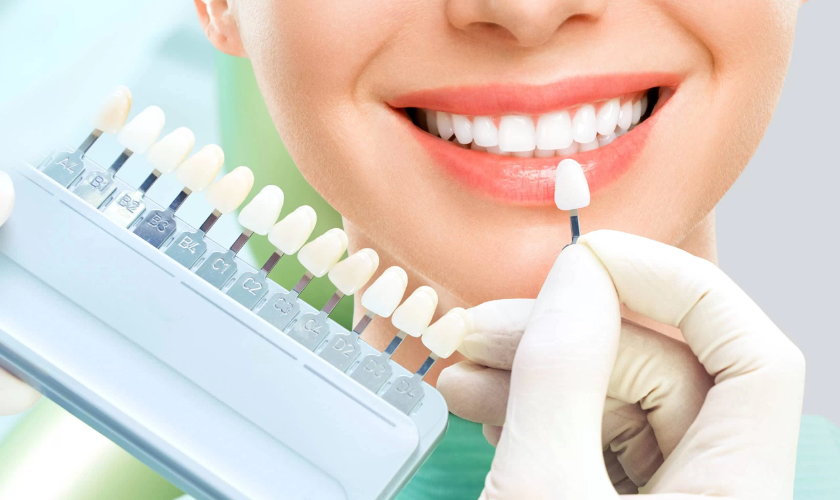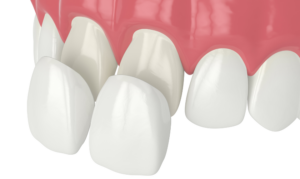
Veneers are a popular cosmetic dental treatment used to enhance the appearance of teeth. Made of thin layers of porcelain or composite resin, veneers can effectively cover imperfections like stains, chips, or gaps, giving you a brighter and more uniform smile. However, if you've opted for veneers and are now considering teeth whitening, you may be wondering: Can you whiten veneers? Let's explore this question in detail.
Can You Whiten Veneers?
Understanding Veneers
Before delving into the whitening process, it's essential to grasp the nature of veneers. Unlike natural teeth, which have pores that can absorb whitening agents, veneers are crafted from less porous materials. This characteristic makes them less responsive to traditional whitening methods compared to natural enamel.
Professional Consultation
If you're considering whitening your veneers, the first step is to consult with a qualified dentist or prosthodontist. They will assess the condition of your veneers, determine the type of material used, and discuss suitable whitening options tailored to your specific needs.
Whitening Options

While traditional whitening techniques may not be effective on veneers, there are alternative methods available:
- Polishing: Professional polishing by a dentist can help remove surface stains and restore the natural luster of veneers.
- Replacement: In some cases, replacing old or discolored veneers with new ones may be the most effective solution for achieving a brighter smile.
- Composite Bonding: For veneers made from composite resin, a dentist in Hayden can apply a fresh layer of bonding material to improve color and aesthetics.
- Microabrasion: This minimally invasive procedure involves removing a thin layer of the veneer's surface to eliminate stains and discoloration.
Limitations and Considerations
- Permanent Stains: Deep-seated stains or discoloration within the veneer material itself may be challenging to address through whitening procedures. In such cases, replacement or alternative treatments may be necessary.
- Material Compatibility: The effectiveness of whitening methods can vary depending on the material of the veneers. Porcelain veneers, for instance, are more resistant to staining but may require replacement if significant discoloration occurs.
- Professional Oversight: Attempting to whiten veneers with professional guidance can lead to satisfactory results or damage to the dental restoration. It's crucial to seek expert advice and treatment to ensure safety and efficacy.
Why Can't Veneers Be Whitened?
Understanding why veneers can't be whitened as easily as natural teeth requires insight into their composition and properties:
Non-Porous Material
Unlike natural enamel, veneers are crafted from materials that are non-porous or have minimal porosity. This means that stains and discoloration do not penetrate deeply into the veneer material. As a result, it makes them less responsive to whitening treatments.
Stain Resistance
Porcelain veneers, in particular, are highly resistant to staining compared to natural enamel. However, over time, surface stains may still develop due to exposure to pigmented foods, beverages, and other staining agents. While these surface stains can often be addressed through professional polishing, they may not respond well to traditional whitening agents.
Adhesive Bond
Veneers are securely bonded to the front surface of teeth using dental adhesive. This bond is designed to be strong and durable, providing long-lasting results. However, it also means that attempting to whiten the veneer surface without professional oversight can risk compromising the integrity of the restoration.
Alternative Options for Brightening Veneers
When traditional whitening methods aren't suitable for brightening veneers, several alternative options can effectively enhance their appearance. Here are some alternative options to consider:
Professional Polishing: Dental professionals can perform professional polishing to remove surface stains and restore the natural luster of veneers. This non-invasive procedure involves using specialized tools and polishing agents to gently buff away stains and smooth the veneer surface, resulting in a brighter smile.
Veneer Replacement: If veneers are extensively stained or discolored, replacing them with new ones may be the most effective solution. Dental technology has advanced, allowing for the creation of custom veneers that match the desired shade and appearance, providing a fresh and bright smile.
Composite Bonding: For veneers made from composite resin, composite bonding can be an effective way to improve color and aesthetics. Dental professionals can apply a fresh layer of composite resin to the surface of existing veneers. It blends seamlessly with the surrounding teeth and enhances brightness.
Microabrasion: Microabrasion is a minimally invasive procedure that involves removing a thin layer of the veneer's surface to eliminate surface stains and discoloration. This technique can be particularly effective for addressing mild to moderate staining without compromising the integrity of the veneers.
Dental Contouring: In some cases, minor adjustments to the shape or contour of veneers can improve their appearance and enhance brightness. Dental contouring involves reshaping the outer surface of the veneers to achieve a more uniform and aesthetically pleasing smile.
While veneers offer a durable and aesthetically pleasing solution for improving the appearance of your smile, they cannot be whitened using traditional methods. Instead, focus on maintaining good oral hygiene, scheduling regular dental cleanings, and exploring alternative options like professional polishing if you wish to brighten your veneers. Remember to consult your dentist for personalized advice and recommendations tailored to your specific dental needs.
